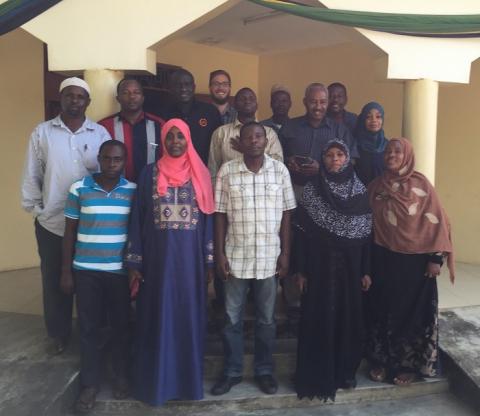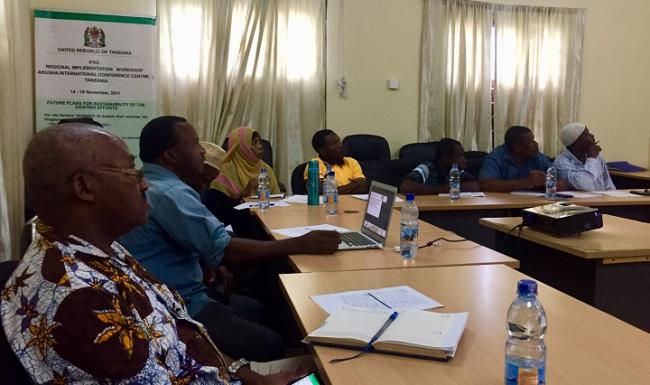Taking the steps to eliminate canine-mediated human rabies on Unguja island, Zanzibar
In their efforts to control and eliminate dog-mediated rabies, the Revolutionary Government of Zanzibar hosted a review workshop to support their strategic island-wide dog vaccination project that has been ongoing on Unguja island since August 2017. During a two-day workshop in January 2018, collaboratively facilitated by the GARC and World Animal Protection, participants from the Ministry of Agriculture, Ministry of Health, Department of Local Governance and the Zanzibar Disaster Management Commission came together to undertake a Stepwise Approach towards Rabies Elimination (SARE) assessment for Unguja island. The SARE assessment was promptly followed by the use of the novel “Practical Workplan towards Achieving Rabies Elimination” (PWARE) tool. The PWARE tool is the latest tool developed by GARC to help countries strategically eliminate canine rabies by facilitating the development of a core Action Plan for the country based on the activities that were highlighted as outstanding during the course of the SARE assessment.
With the country having prior exposure to the SARE tool from previous Pan African Rabies Control Network (PARACON) meetings, the rabies focal persons for Unguja island deemed an in-country SARE assessment an ideal mechanism to reassess the various components of their existing rabies control programme. The comprehensive, yet simple to use, Excel-based SARE tool relies on user input on specific activities within different components viz. legislation; data collection and analysis; laboratory diagnosis; information, education and communication; prevention and control; dog population-related matters; and cross-cutting issues, allowing focussed workshop sessions to take place. The output of the SARE assessment provides countries with measurable steps to progress from being dog rabies endemic (Stage 0) to its control and eventual elimination (Stage 5).
The final SARE score for Unguja island (2.5 out of 5) was indicative of a country/region where large-scale rabies control initiatives are established and routinely implemented. Countries at this stage along the SARE pathway are often close to achieving success in terms of the control of dog-mediated rabies and require a concerted effort towards maintaining their programmatic momentum.
In order to assist countries in creating workplans for the implementation of rabies control activities within their countries, GARC has now developed an automated workplan generator. The PWARE is also an Excel-based tool that automatically develops a workplan for a country based on their own specific pending SARE activities. The fully customizable workplan comes completed with editable i) objectives, ii) outcomes, iii) key performance indicators and iv) responsible authorities for each of the pending activities. Furthermore, by coupling each of the pending activities with a specific timeframe to completion, the workplan automatically plots specific Gantt charts and graphs showing the distribution of activities over the allotted time period, ensuring an even distribution of intended activities over the allotted time.
By being the first country to use the SARE and PWARE tool combination, the Revolutionary Government of Zanzibar has taken the initiative of prioritizing rabies control on the island. By combining their dedication and passion with the available tools and their newly developed workplan, their progress is all but assured.
Written by Andre Coetzer. Global Alliance for Rabies Control, South Africa.The workshop was made possible by the generous support of World Animal Protection.

